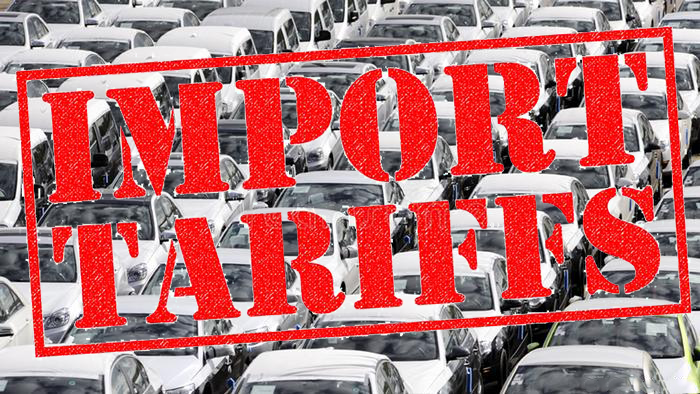Understanding Import Charges & Other Fees When Importing Cars to Ireland
Understanding Import Charges & Other Fees When Importing Cars to Ireland

Importing a car to the Republic of Ireland involves a number various steps along with the associated importation charges and fees. All of these charges should be fully considered when setting your budget for the car you intend to purchase and the process of importation. Being fully aware of these charges from the outset will help you avoid any surprises and ensure a trouble-free importation. Below, we look more closely at the specifics of the charges involved, and how they apply to anyone planning to undertake the importation of a vehicle.
Vehicle Registration Tax (VRT)
Familiar to most people with even a passing interest in cars, Vehicle Registration Tax (VRT) is one of the most significant charges when importing cars to Ireland. VRT is a tax imposed on the registration of all cars, new and used, when first registered in the Republic of Ireland. The VRT is calculated based on the car's Open Market Selling Price (OMSP), CO2 emissions, and certain other factors. The Revenue Commissioners provide a comprehensive guide to the application of VRT and the rates at which it is applied to various types of vehicle. An Online VRT calculator that allows you to estimate the VRT amount before importing is also a very useful resource for more accurately calculating the likely charges for the vehicle you want to purchase. Vehicles imported must be registered within 30 days of arrival in the country and VRT is payable at the time of registration.
Value Added Tax (VAT)
Value Added Tax (VAT) may be applicable when importing a car to Ireland. VAT is calculated based on the car's value and is payable upon arrival in the country, unlike VRT which, as mentioned above, is payable upon registration. The current standard VAT rate in Ireland is 23%. However, it is advisable to consult with the Revenue Commissioners or a tax professional for the specific VAT rates applicable to various vehicles and to avail of any exemptions or reliefs, which may be available in certain circumstances. Again, an online Customs Duty & Vat Calculator can be used to great effect in more accurately estimating the charges which will likely fall due.
Customs & Excise Duty
Customs Duty is a charge imposed on goods imported from outside the European Union (EU). Customs and excise duties are based on the market value of the vehicle in Ireland at the time of importation. It’s important to remember that since Brexit, all vehicles imported from there are subject to VAT and Customs charges. There is however, an exception to this rule. Cars imported, which are first registered in Northern Ireland do not incur Customs Duty due to the EU-UK Trade and Cooperation Agreement. Nevertheless, it's advisable to keep yourself informed of any changes to customs regulations in this regard.
National Car Test (NCT)
Once imported to Ireland, private cars are subject to roadworthiness testing under the National Car Test (NCT). The NCT establishes if the vehicle meets the necessary safety and emissions standards in Ireland and is fit for use on public roads. The NCT is subject to a flat-rate fee and is payable at the time of testing. The current rate for testing and any subsequent re-test can be checked at ncts.ie
Transportation and Handling Fees
If you choose to ship the car to Ireland, you will incur shipping and handling fees. These fees can vary depending on the shipping company, the distance involved, and various other factors. It's advisable to obtain several quotes from reputable shipping companies or specialist importers and factor in these costs when budgeting for the importation process.
You may also decide to collect the car in person and drive it home yourself. In this case, make sure to fully account for the costs involved such as fuel, road tolls, airfares, additional insurance and personal expenses incurred along the way.
Getting Professional Advice on Importing
Familiarising yourself with the complexities of importing a car can take a lot of time and effort. If your time is limited, you may need professional assistance. Consulting a customs broker or a specialist car importation service can save time, avoid unnecessary delays and unexpected costs. While brokers fees may vary depending on the level of services provided, their professional expertise can streamline the entire import process and make the whole experience a lot less stressful and time consuming.
By fully understanding the charges and seeking professional advice where necessary, you can plan and budget accordingly, ensuring a trouble-free importation of your new car and potentially saving thousands in the process.
Author

Justin Kavanagh
Justin Kavanagh is a recognised leader
in automotive intelligence and vehicle
data supply to the entire motor industry.
He has almost 20 years experience in
building systems from the ground up.
As the Managing Director of Vehicle
Management System, he understands the
need and importance of trustworthy and
reliable vehicle history and advice to
both the trade and the public.
Follow me on LinkedIn